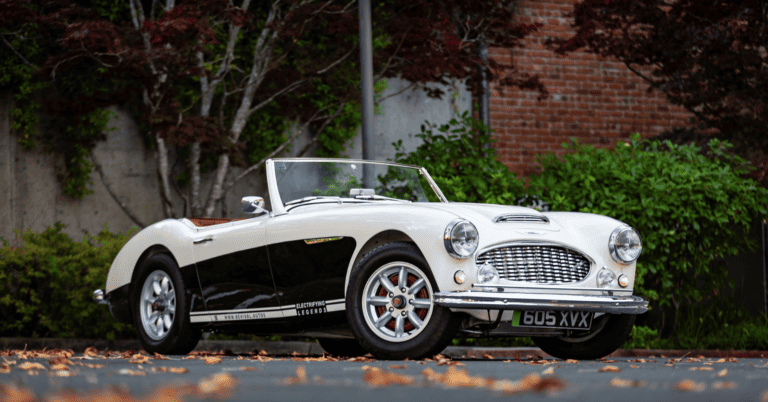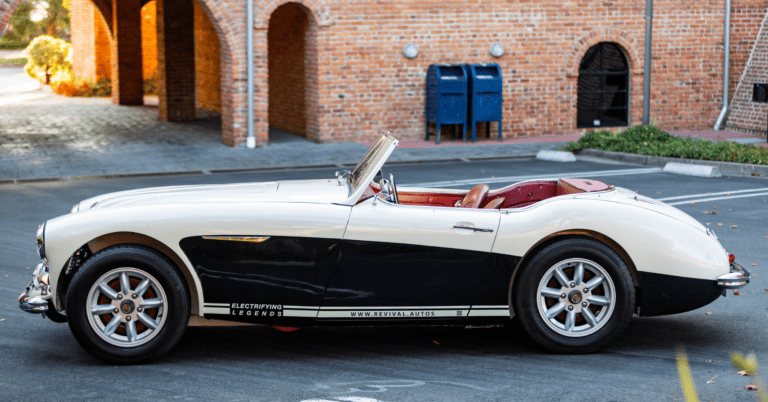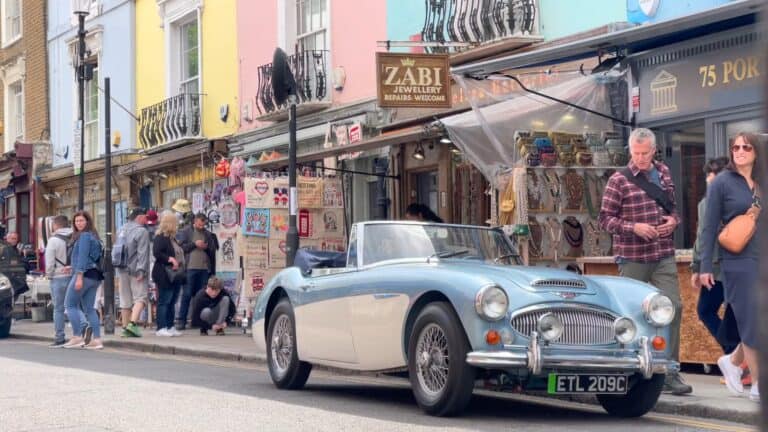If you’ve ever dreamt of cruising down memory lane in your classic car while being environmentally conscious, you’re not alone. The allure of classic cars meets the eco-friendly appeal of electric vehicles in a transformation that’s gaining traction. But just how much does it cost to convert your beloved classic into an electric marvel? Let’s dive into the electrifying details of this journey and discover how it might not be as shocking to your wallet as you think.
Learn more: electric classic cars
The Electric Renaissance: A Stats-Driven Shift
Let’s explore the cost details after acknowledging the significant shift in the automotive industry. In 2020, electric vehicle (EV) sales achieved a record-breaking milestone, with 3.24 million units sold globally, representing a remarkable 43% increase compared to the previous year.This substantial growth demonstrates that the interest and adoption of electric cars are not fleeting trends but rather a global movement gaining momentum.
Now, picture combining this electrifying trend with the timeless charm of classic cars. It’s like infusing new life into a vintage masterpiece, all while contributing to a greener future. But wait, how much will this electrifying transformation cost you?
The Cost Factor: Breaking It Down
- The Classic Car Choice
Your classic car is the star of the show, and the choice you make here sets the stage for your electric journey. The cost can vary greatly based on the make and model of your classic. Some cars have more straightforward conversions, while others might require a bit more finesse. Think of it as choosing the right actor for a leading role – it can make or break the performance.
- The Power Behind the Transformation
At the heart of your electric conversion lies the electric powertrain. This includes the electric motor, batteries, and all the electrical wizardry needed to bring your classic to life in an eco-friendly way. Prices for these components can range widely, depending on their capacity and brand. Think of it as picking out the best ingredients for a gourmet meal – quality matters.
- Labor of Love
Unless you’re a skilled mechanic with a penchant for electrical engineering, you’ll likely need some professional help. Labor costs can be a significant portion of your conversion budget. Like hiring a talented chef to prepare your gourmet meal, the expertise you choose matters.
- Customization and Aesthetic Preservation
This is the stage where you have the opportunity to infuse your personal preferences. Do you aim to preserve the classic aesthetics and ambiance of your car, or are you open to incorporating contemporary elements? The cost of customizations can fluctuate depending on the extent of your modifications, much like redesigning your home – the possibilities are endless.
- Fine-Tuning and Optimization
After your classic car has been successfully converted to electric, the next step involves fine-tuning. This meticulous process ensures that all the newly integrated components operate seamlessly, akin to the harmony of a symphony orchestra. Some adjustments and tweaks may be necessary to ensure that everything runs smoothly and efficiently.
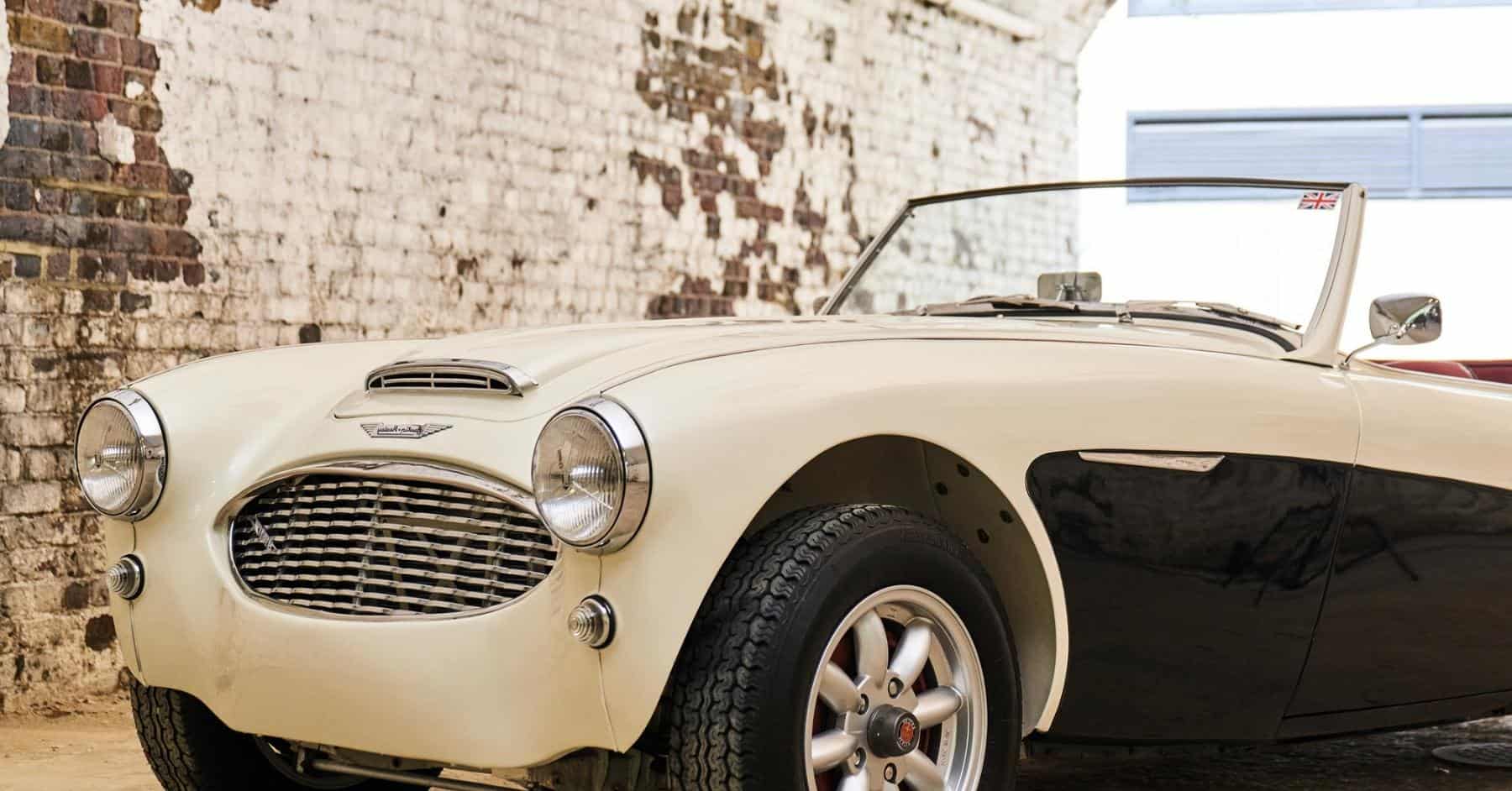
Putting Numbers to the Transformation
Classic Car Choice
The cost of your classic car can vary widely, from a few thousand dollars for less common models to six figures for exceptionally rare or iconic classics.
Electric Powertrain
Depending on the components you select, this could range from $5,000 to $20,000 or more.
Labor Costs
Skilled labor comes at a premium, and you might need to budget several thousand dollars for professional assistance.
Customization
This is where you have the most flexibility. You can invest a modest amount in minor modifications or fully commit to a comprehensive restoration, with costs ranging from a few hundred dollars to several tens of thousands.
Fine-Tuning
Budget a few thousand dollars for this final step to ensure everything functions smoothly.
The Final Verdict: Is It a Wise Investment?
Now that you have a rough estimate, you might be pondering whether this investment makes sense. Consider it this way – you’re not merely converting your classic car; you’re reshaping it into a piece of automotive history with a sustainable twist. It’s akin to transforming a vintage vinyl record into a Spotify playlist; the essence remains, but it’s now tailored for the future.
Furthermore, let’s not overlook the lasting advantages. Electric vehicles are renowned for their efficiency and reduced operating costs. Electricity typically costs less than gasoline, and electric cars demand less maintenance due to fewer moving parts. So, although the initial conversion expense may appear significant, you’re likely to recover some of it through long-term savings on fuel and maintenance.
Conclusion: An Electrifying Adventure
So, what’s the price tag for converting a classic car to electric? The answer varies, but one thing is certain – it’s a venture worth considering. You’re not just upgrading a car; you’re revitalizing history and contributing to a greener future. While the costs may pose a challenge, remember that every masterpiece has its associated costs. In this case, the price includes a touch of eco-consciousness, a dash of nostalgia, and a whole lot of style. So, if you’ve ever envisioned cruising down the road in your classic car, emitting nothing but positive vibes, it might be time to ignite that dream with sustainability. After all, it’s more than just a conversion; it’s an electrifying journey.
Our Expertise in Classic Car Conversions
Revival Autos distinguishes itself through our unwavering commitment to classic car conversions. Driven by a profound passion for preserving automotive history and a steadfast dedication to sustainable progress, our expertise has been finely tuned through the years. Our conversions are characterized by meticulous craftsmanship and an unwavering focus on precision, resulting in each project becoming a masterpiece. We seamlessly merge the enduring allure of classic cars with the efficiency of electric power. Our sense of pride lies in our ability to rejuvenate these iconic vehicles, all the while actively contributing to a more environmentally friendly future in the automotive industry.
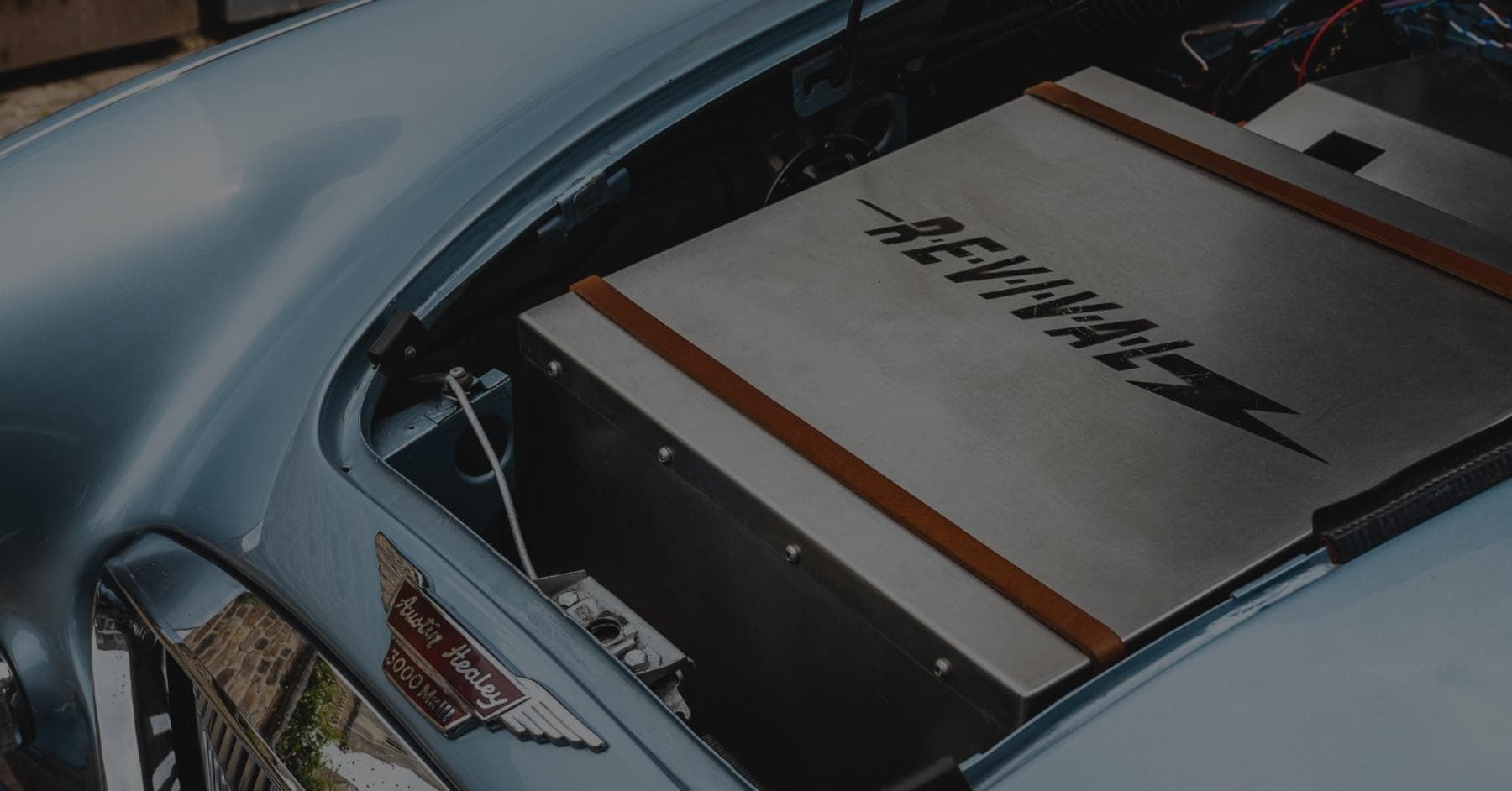
Meet Our Expert Team
Our team of experts at Revival Autos is the driving force behind our success. Comprising seasoned automotive engineers and devoted enthusiasts, they bring a wealth of knowledge and hands-on experience to every project. What truly sets them apart is not just their technical acumen, but their profound passion for classic cars and their commitment to sustainable innovation. Their meticulous approach ensures that each conversion is a masterpiece, preserving the cherished heritage of classic automobiles while seamlessly integrating modern electric technology. With our expert team at the helm, your classic car is in capable hands.
FAQs
- Can Any Classic Car Be Converted to Electric?
The feasibility of converting a classic car to electric depends on several factors. These include the car’s size, weight, and available space for batteries. Consulting a specialist is crucial to assess whether your specific classic car can accommodate the necessary modifications.
- What’s the Typical Conversion Cost?
The price of converting a classic car to electric is subject to significant variation. It hinges on factors like the car’s make and model, the selected components (such as battery capacity and motor), and any desired customizations. While the expenses can span from several thousand to tens of thousands of dollars, obtaining an accurate estimate necessitates a comprehensive assessment of your unique project.
- How Long Does the Conversion Process Take?
The duration of the conversion process is subject to variability, contingent on factors such as project complexity, part availability, and the proficiency of the team engaged in the project. While some conversions may take several weeks, others could extend to several months to ensure all aspects are meticulously addressed.
- Does an Electric Conversion Affect the Car’s Value?
A well-executed electric conversion can enhance the value of a classic car, provided it maintains or even improves performance and retains its original aesthetics. Buyers often appreciate the combination of classic charm and modern eco-friendliness.
- Can I Still Use My Classic Car Daily After Conversion?
Indeed, electric classic cars can be well-suited for daily use, though this hinges on variables like the car’s range and the accessibility of charging infrastructure in your locale. Electric vehicles typically provide reliability and efficiency, making them a practical choice for everyday driving.
- What About Maintenance for Electric Classics?
Electric cars typically demand less maintenance compared to their gasoline counterparts, primarily because they have fewer moving parts. Nevertheless, it’s crucial to factor in battery maintenance and potential replacement expenses over the long term.
- Is Reversing an Electric Conversion Possible?
While it’s technically possible to reverse an electric conversion and restore the original engine, it’s a complex process that often involves significant modifications. Reversing the conversion is not commonly done but can be explored if necessary.
- How Does Range Compare to Gasoline Cars?
The range of an electric classic car can vary depending on the specific conversion. However, with advancements in electric technology, some electric classics can achieve ranges comparable to their original gasoline counterparts. It’s essential to discuss range expectations with your conversion specialist.
- What Charging Infrastructure Do I Need?
Access to charging infrastructure is essential for electric car owners. Depending on your driving habits and location, you may need access to standard home charging solutions or public charging stations. Ensuring convenient access to charging is crucial for a positive electric driving experience.
- Are There Tax Incentives for Electric Conversions?
Tax incentives and credits for electric vehicle conversions can vary by region and government policies. To determine if you’re eligible for any financial incentives, it’s advisable to check with local authorities or consult with tax experts familiar with electric vehicle incentives in your area.


